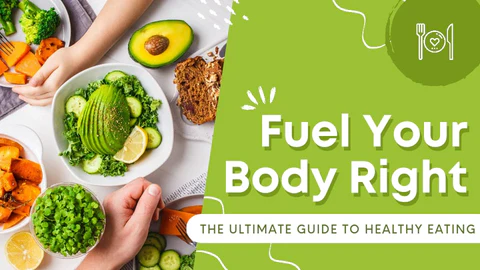In today’s fast-paced world, making informed food choices is crucial for maintaining overall health and well-being. The concept of smart nutrition goes beyond just counting calories or following the latest diet trends; it emphasizes a balanced approach to eating that fuels the body and mind efficiently. In this guide, we’ll explore the key principles of smart nutrition and how you can implement them into your daily life.
Understanding Smart Nutrition
Smart nutrition involves consuming foods that provide the maximum health benefits while avoiding unnecessary additives and empty calories. It is a holistic approach that considers the quality, quantity, and timing of food intake. A well-balanced diet consists of whole foods rich in essential nutrients, including proteins, carbohydrates, healthy fats, vitamins, and minerals.
Key Principles of Smart Nutrition
- Balance and Variety – Incorporate a diverse range of foods in your diet to ensure that you receive all essential nutrients. Eating a mix of fruits, vegetables, whole grains, lean proteins, and healthy fats is crucial.
- Portion Control – Overeating, even healthy foods, can lead to weight gain and other health concerns. Be mindful of portion sizes and listen to your body’s hunger and fullness cues.
- Nutrient-Dense Choices – Opt for foods that provide high nutritional value with fewer empty calories. For example, choose whole grains over refined grains and fresh fruits over sugary snacks.
- Hydration Matters – Water is essential for overall health. Ensure that you drink enough water throughout the day to stay hydrated and support bodily functions.
- Mindful Eating – Eating with awareness helps prevent overeating and improves digestion. Take time to enjoy your meals, chew slowly, and avoid distractions like screens while eating.
- Minimizing Processed Foods – Highly processed foods often contain unhealthy fats, added sugars, and artificial ingredients that can negatively impact your health. Focus on whole, natural foods whenever possible.
Building a Smart Meal Plan
Creating a nutritious meal plan doesn’t have to be complicated. Here’s an example of a balanced daily meal plan:
- Breakfast: Oatmeal with fresh berries and nuts
- Lunch: Grilled chicken salad with mixed greens and olive oil dressing
- Snack: Greek yogurt with honey and almonds
- Dinner: Baked salmon with quinoa and steamed vegetables
- Hydration: Plenty of water, herbal teas, and minimal sugary drinks
The Role of Physical Activity
While nutrition plays a vital role in health, combining it with regular physical activity enhances overall well-being. Exercise helps regulate metabolism, improves digestion, and supports mental health. Aim for at least 30 minutes of moderate exercise most days of the week.
Final Thoughts
Smart nutrition is about making informed, sustainable choices that benefit your long-term health. By focusing on balance, portion control, nutrient-dense foods, hydration, and mindful eating, you can develop healthy habits that lead to improved energy levels, better digestion, and overall wellness. Start incorporating these principles into your lifestyle today and experience the benefits of smart nutrition!





